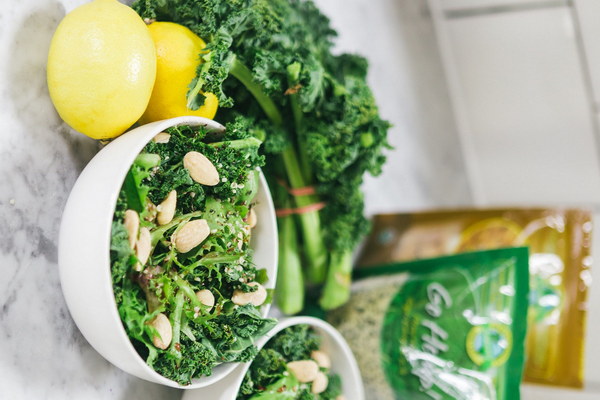Nurturing Your Toddlers Stomach Tips for Cultivating a Healthy Digestive System at 18 Months
Caring for a child's health is a top priority for any parent, and ensuring that your 18-month-old's digestive system is strong is no exception. The stomach, or spleen in traditional Chinese medicine, is crucial for overall growth and development. Here are some practical tips to help you nurture your toddler's stomach and foster a healthy digestive system.
1. Introduce a Balanced Diet

A well-rounded diet is essential for maintaining a healthy stomach. Incorporate a variety of fruits, vegetables, whole grains, lean proteins, and healthy fats into your child's meals. Aim for a balance of macronutrients to provide the necessary nutrients for growth and energy.
- Offer a variety of fruits and vegetables, steamed or pureed, to ensure your child receives essential vitamins and minerals.
- Include whole grains like oatmeal, brown rice, and quinoa, which provide fiber and energy.
- Serve lean proteins such as chicken, turkey, fish, and tofu to support muscle development and repair.
- Introduce healthy fats from avocados, nuts, and seeds to support brain development and overall health.
2. Avoid Overeating
Overeating can lead to indigestion, discomfort, and a weakened stomach. Monitor your child's portions and try to feed them at regular intervals to prevent hunger and overeating.
- Observe your child's hunger cues and respond accordingly.
- Encourage your child to eat slowly and enjoy their food, rather than rushing through meals.
- Offer small, frequent meals and snacks to keep your child's stomach satisfied and prevent overindulgence.
3. Hydrate Properly
Proper hydration is essential for digestion and overall health. Ensure your child drinks plenty of water throughout the day, especially during hot weather or after physical activity.
- Provide a sippy cup or water bottle filled with water for your child to sip on throughout the day.
- Offer diluted fruit juice or herbal teas as occasional alternatives to water.
- Avoid sugary drinks, which can disrupt digestion and contribute to weight gain.
4. Encourage Physical Activity
Regular physical activity can help promote healthy digestion and prevent constipation. Encourage your child to engage in activities like playing outside, dancing, or running around the block.
- Provide opportunities for your child to be active every day, even if it's just playing in the yard or taking a short walk.
- Limit screen time to encourage physical activity and reduce the risk of sedentary behavior.
- Encourage your child to participate in group activities or sports to foster social skills and develop coordination.
5. Practice Good Hygiene
Teach your child proper hand-washing techniques to prevent the spread of germs that can cause stomach issues.
- Demonstrate proper hand-washing techniques to your child and encourage them to wash their hands before meals and after using the bathroom.
- Keep a clean kitchen and dining area to reduce the risk of foodborne illness.
- Encourage your child to cover their mouth and nose when they cough or sneeze to prevent the spread of germs.
6. Seek Professional Advice
If you have concerns about your child's digestive health or if they exhibit symptoms such as persistent diarrhea, constipation, or abdominal pain, consult with a pediatrician or a pediatric gastroenterologist.
By following these tips, you can help nurture your 18-month-old's stomach and support a healthy digestive system. Remember, each child is unique, so it's essential to pay attention to your child's specific needs and consult with healthcare professionals when necessary.









